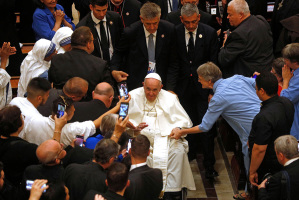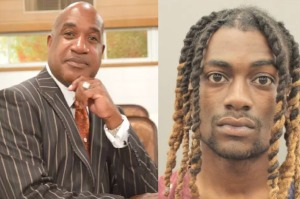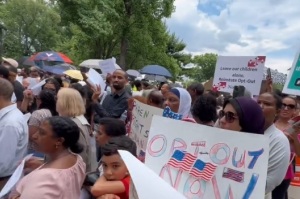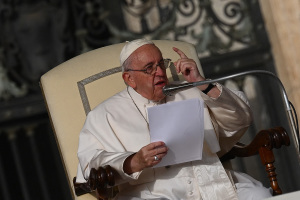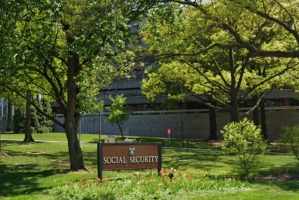PCA increases grant giving to enhance diversity of leadership
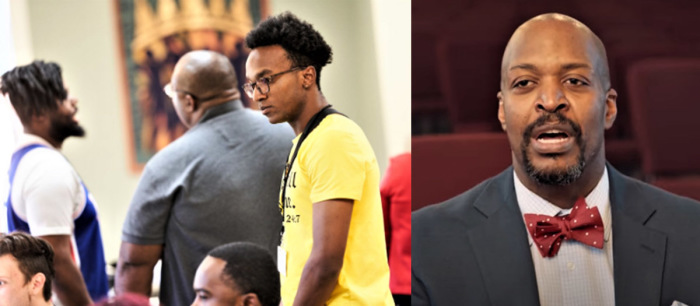
The Presbyterian Church in America is increasing the number of education grants it awards to help minorities become congregational leaders and will soon be voting on whether to double the amount for assistance annually.
“If our church is only [reflective of the] majority culture, it’s going to be hard for us to grow,” the Rev. Chris Sicks, senior pastor of Alexandria Presbyterian Church of Virginia, told The Christian Post about the PCA. “That’s the pragmatic reason. The deeper reason is it’s a Gospel imperative. … For the Body of Christ to be fully realized, it needs to represent the fullness of humanity.”
Sicks’ church donates to the Unity Fund, which was started in 2016 to provide money for theological coursework assisting people of color in becoming teaching and ruling elders in the denomination. The fund also provides money for the body’s small group of minorities who are already in the eldership to go to the General Assembly, the Reformed body’s annual meeting.
The fund came about after the PCA passed a resolution to apologize for member churches’ past racism dating from the civil rights era and earlier, when many were part of the Southern Presbyterian Church.
The Rev. Scott Bridges, a longtime PCA pastor on both the East and West Coasts, heads the Unity Fund and helped to launch the program. He was motivated when friend Irwyn Ince — the only African American presiding officer ever elected by the General Assembly — told him how many black teaching elders were in the PCA: 47 of nearly 4,800 overall.
Bridges then looked at the denomination’s “Blue Book,” the annual report of statistics, and he found even fewer Latinos in the category and only a pair of Native Americans. “I compared where those statistics told us we were versus Revelation 7:9,” which talks of the “great multitude” from “all nations, tribes, peoples and tongues” worshiping the Lord in Heaven, he told CP.
Looking again at Revelation, he noticed something else as well. “The only way John describes the church in its glorified state is by its differences,” he said. He was sold on making the fund a reality.
Bridges initially was a missionary for the project, raising his own support while asking churches and individuals to give to the fund, which has had a $200,000 target each year but is expected to increase to $400,000 under a plan approved by its board that will go to the General Assembly for a final vote. He said that in the 12 months ending Aug. 31, the fund received approximately $300,000 in donations. Bridges now works full time in development with a salary paid for by the PCA.
Meanwhile, the number of scholarships awarded annually has grown each year, from 41 in 2018 to 66 in 2019 and 68 this year. The amount of each award has increased as well, recently doubling to $2,200 annually for those on an ordination track and going from $750 up to $1,100 for others.
The fund has an endowment, but at under $200,000, it’s still well short of its $5 million goal. “People usually are more excited about wanting to give to needs now,” Bridges explained of the endowment’s funding gap. “They say, ‘I want my dollars to make a difference now.’’’
There is, however, good news on that front, as he said there’s a group of ruling elders — laymen — who came together last year to help focus the denomination on funding for the endowment.
Ince, a PCA teaching elder and the director of the Institute for Cross-Cultural Mission in Washington, D.C., told The Christian Post that funding to foster future pastors and other leaders of color is important. “There should not be more effort and desire for diversity in society than there is in the church,” he said. “No matter how much the world wants to talk about diversity, it ultimately will truncate it because it doesn’t have the Gospel.”
While the Unity Fund’s goal is to diversify the eldership over the long term, PCA’s leadership ranks are already moving slightly in that direction. African Americans now account for slightly over 1% of teaching elders, Latinos 0.8% (up from 0.7% before the fund) and Asians 10%.
The comparatively large Asian group is due mainly to the success of Presbyterian missions in Korea in the late 1800s and early 1900s. Ince said that though that minority is well-represented in the denomination’s church leadership, its members still receive scholarships and other aid.
“The Unity Fund is focused on helping ethnic minorities no matter what ethnicity and is for any and every ethnic minority,” he said, noting that Korean American pastors have begun an initiative within the denomination to become more involved in PCA’s work globally and nationally.
















